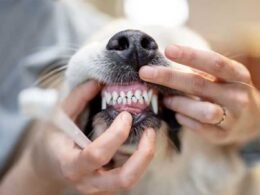Dog bites can cause lasting physical and emotional injuries, ranging from deep puncture wounds and scarring to anxiety and trauma. These incidents often lead to confusion about liability, medical expenses, and what legal action, if any, can be taken. Victims are sometimes unsure whether they have grounds to seek compensation, especially if the dog owner is a neighbor or acquaintance. Legal guidance becomes crucial in such moments, offering clarity about the rights of the injured party and the responsibilities of the dog’s owner. Knowing what steps to take can be the difference between a prolonged recovery and a supported one with fair restitution.
Legal response to dog bites and accountability
- Determining Liability in Dog Bite Cases
Liability in dog bite incidents often depends on a state’s legal framework, which typically falls under strict liability or negligence rules. In strict liability states, a dog owner is responsible for a bite even if the dog had no prior history of aggression. Meanwhile, negligence-based states require the injured party to prove that the owner failed to act responsibly, such as not leashing the dog or ignoring known risks. These cases can become complex when they involve shared spaces, third-party caretakers, or off-leash dog parks. Each detail—from where the bite happened to whether the dog was provoked—plays a role in how the claim unfolds. Legal representatives can guide victims in gathering documentation, including medical records and witness statements, that establish the context of the attack. Some cases also involve violations of local ordinances, such as leash laws, which can strengthen a claim. Ensuring evidence is preserved early on is crucial to building a strong liability case.
- The Legal Process After a Dog Bite Injury
Once a bite occurs, the legal process begins with seeking medical attention and reporting the incident to the local authorities or animal control. This report serves as a safety measure for the public and as documentation of the incident. Legal counsel is essential in helping navigate what happens next, from filing insurance claims to preparing for potential litigation. Many homeowners’ insurance policies cover dog bites, but getting compensation is not always straightforward. Insurance adjusters may challenge the severity of injuries or attempt to downplay long-term damage. A dog bite law firm can play a critical role in countering such tactics, ensuring the victim’s side is presented and supported by facts. The legal process also involves negotiating with the insurance provider; if that fails, proceeding to court becomes an option. Legal professionals can manage the paperwork, deadlines, and communication necessary to keep the case progressing efficiently and fairly.
- Emotional and Psychological Considerations
The physical wounds caused by a dog bite are visible and often treated quickly, but the emotional consequences may linger far longer. Many victims, especially children, experience long-term anxiety, fear of dogs, or sleep disturbances. These psychological effects are just as real as the scars and should not be overlooked when seeking justice. Courts increasingly recognize the role emotional trauma plays in personal injury cases, and a thorough legal approach will include documentation of counseling or therapy sessions. Mental health professionals can offer assessments as formal evidence in a case. These emotional harms often factor into compensation discussions, particularly when the bite results in lifestyle changes, such as avoiding outdoor areas or public parks. Legal teams help articulate the invisible impact of trauma in a way that insurance companies or jurors can understand. This human element is crucial to obtaining a resolution that reflects the full extent of the damage suffered by the victim.
- Responsibilities of Dog Owners
Dog owners are legally and morally responsible for preventing their pets from causing harm. This responsibility extends beyond keeping a dog leashed; it involves understanding its temperament, taking precautions if a dog has displayed aggression, and ensuring that fences or barriers are secure. Some jurisdictions also require certain breeds to follow additional rules, such as wearing muzzles or being registered with local authorities. When owners fail in these duties, they can be held accountable for resulting injuries. A history of previous incidents can significantly increase liability, especially if the owner was unable to take corrective measures. A first-time incident does not absolve an owner of responsibility, particularly in strict liability areas. Legal action serves to compensate the victim and emphasize the importance of responsible pet ownership within the community. Preventative steps can reduce future harm, making legal accountability a public safety issue.
- Long-Term Impact of Bite-Related Injuries
Dog bites can lead to more than temporary discomfort. Severe bites may result in nerve damage, infections, or permanent scarring that requires surgery or cosmetic procedures. The recovery timeline can stretch across months or even years, affecting a person’s ability to work, socialize, or participate in daily routines. These long-term effects are especially significant for those who use their hands for a living, such as construction workers, musicians, or chefs. Medical costs can accumulate quickly, and not all insurance plans provide sufficient coverage for physical therapy, counseling, or reconstructive surgery. Legal compensation can help cover these costs and relieve income lost during recovery. In some cases, legal teams also pursue damages for pain and suffering, reflecting the injury’s personal toll. A well-prepared case accounts for the immediate aftermath and how the injury continues to affect the victim’s life long after the physical wounds have healed.
- Final Thoughts on Pursuing Justice After a Dog Bite
Being attacked by a dog can turn an ordinary day into a life-altering experience. Victims often face medical treatments, emotional trauma, and a challenging legal path just to secure what they need to move forward. Legal support is crucial in helping victims understand their rights, navigate insurance hurdles, and hold dog owners accountable for their actions. A thoughtful approach to the legal process ensures that both physical and emotional consequences are considered and that recovery is supported beyond emergency care. In the wake of such an event, knowing that the law can be a tool for fairness and healing offers reassurance when needed most.










